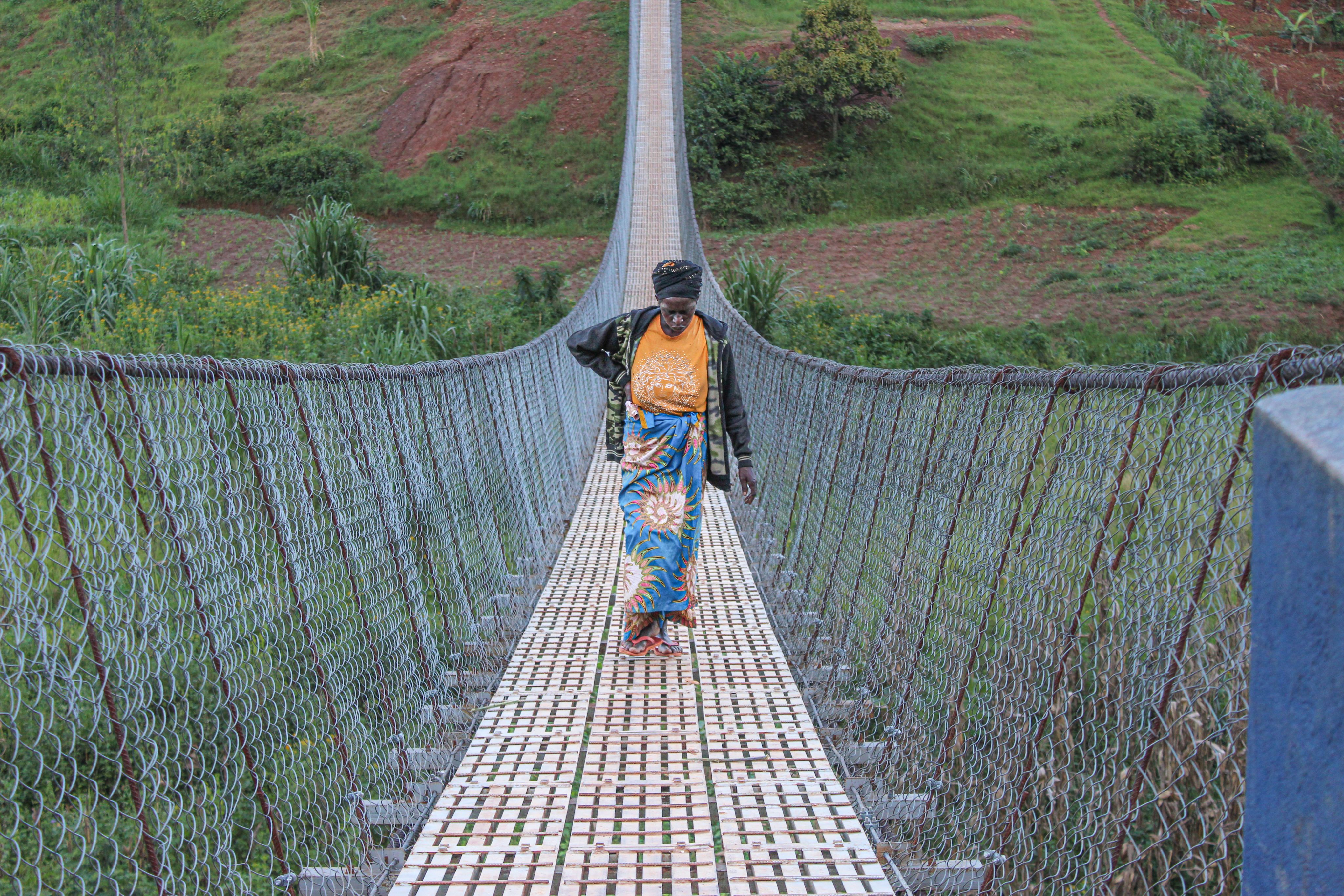Her dream is to become a large-scale farmer, but climate change is hurting Celine’s crops and pushing her goals further out of reach.
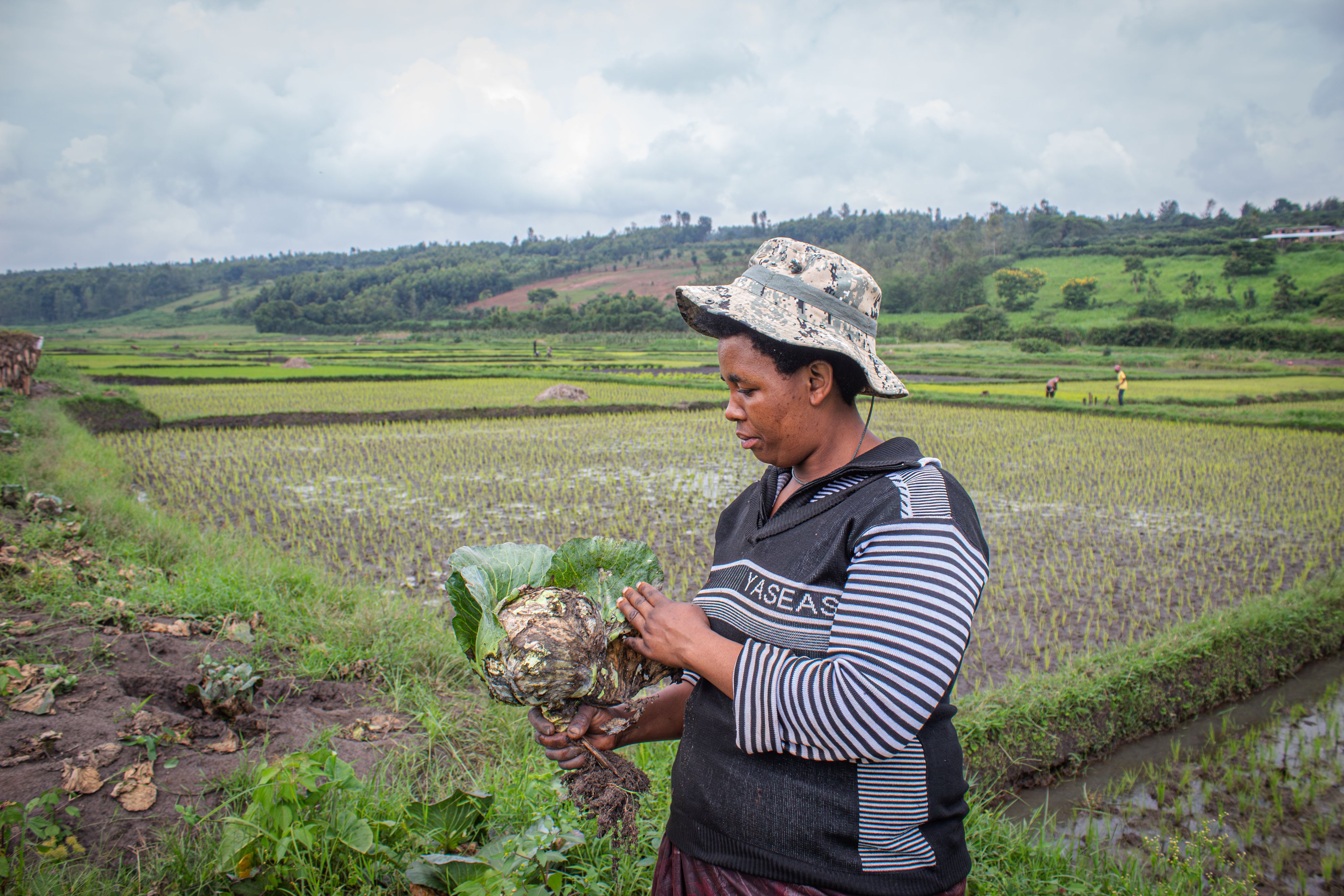
Celine Nyirabugingo is a crop farmer based in Rwamagana, Eastern Province, Rwanda.
Celine has always known that she wanted to be a farmer. As a girl, she grew up watching and supporting her mother in growing onions. As such she learnt much about the practice at a young age, and knew this is what she wanted for herself.
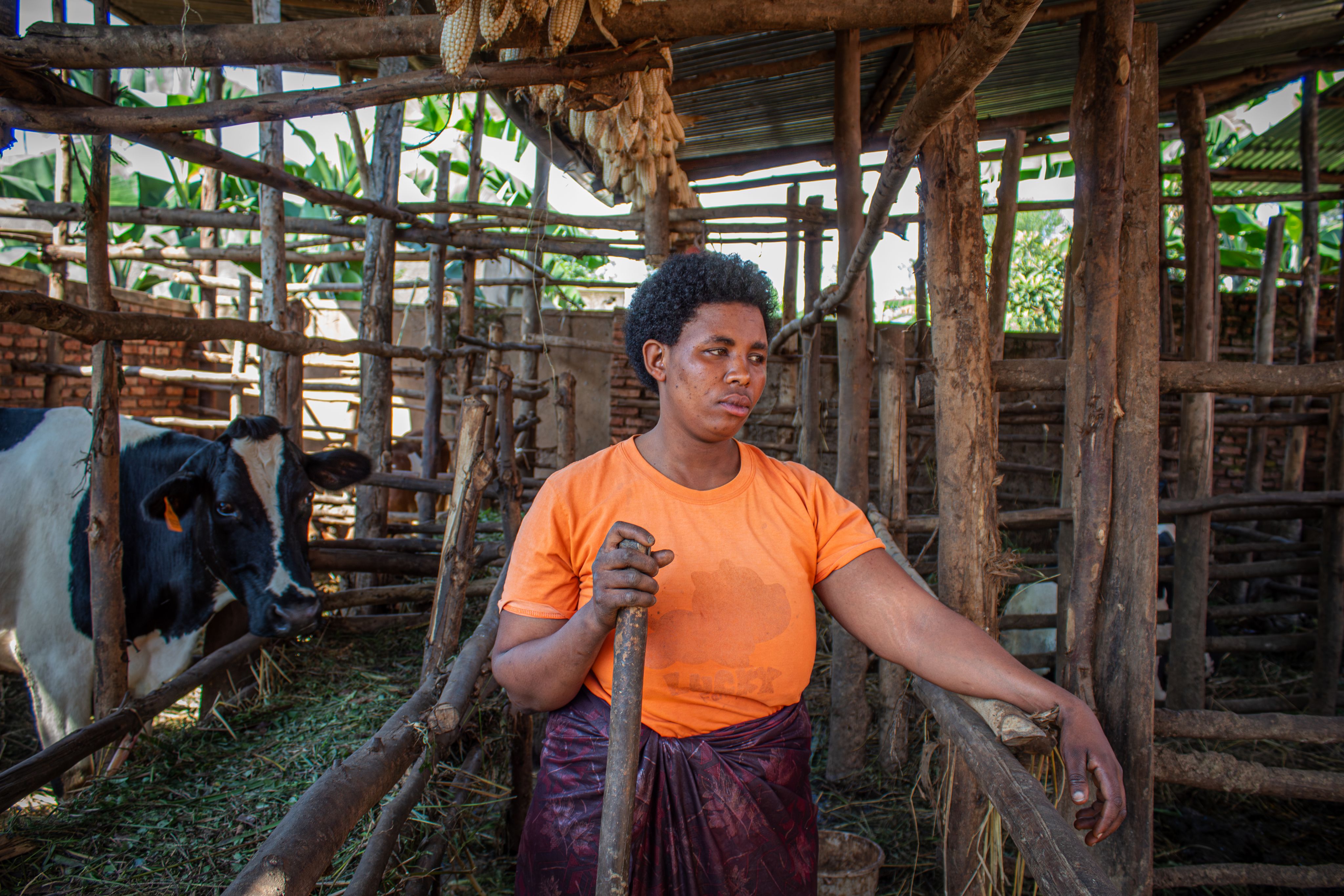
Celine Nyirabugingo pictured in her cowshed in Rwamagana Eastern Province Rwanda. February 7th 2024
Celine Nyirabugingo pictured in her cowshed in Rwamagana Eastern Province Rwanda. February 7th 2024
Now married and with a family of her own, Celine has been practicing farming for fourteen years. She owns a number of plots in Gishali swamp, where many residents grow their rice. Celine grows various vegetables but specializes in growing cabbages, which she sells wholesale to various vendors based in the area.
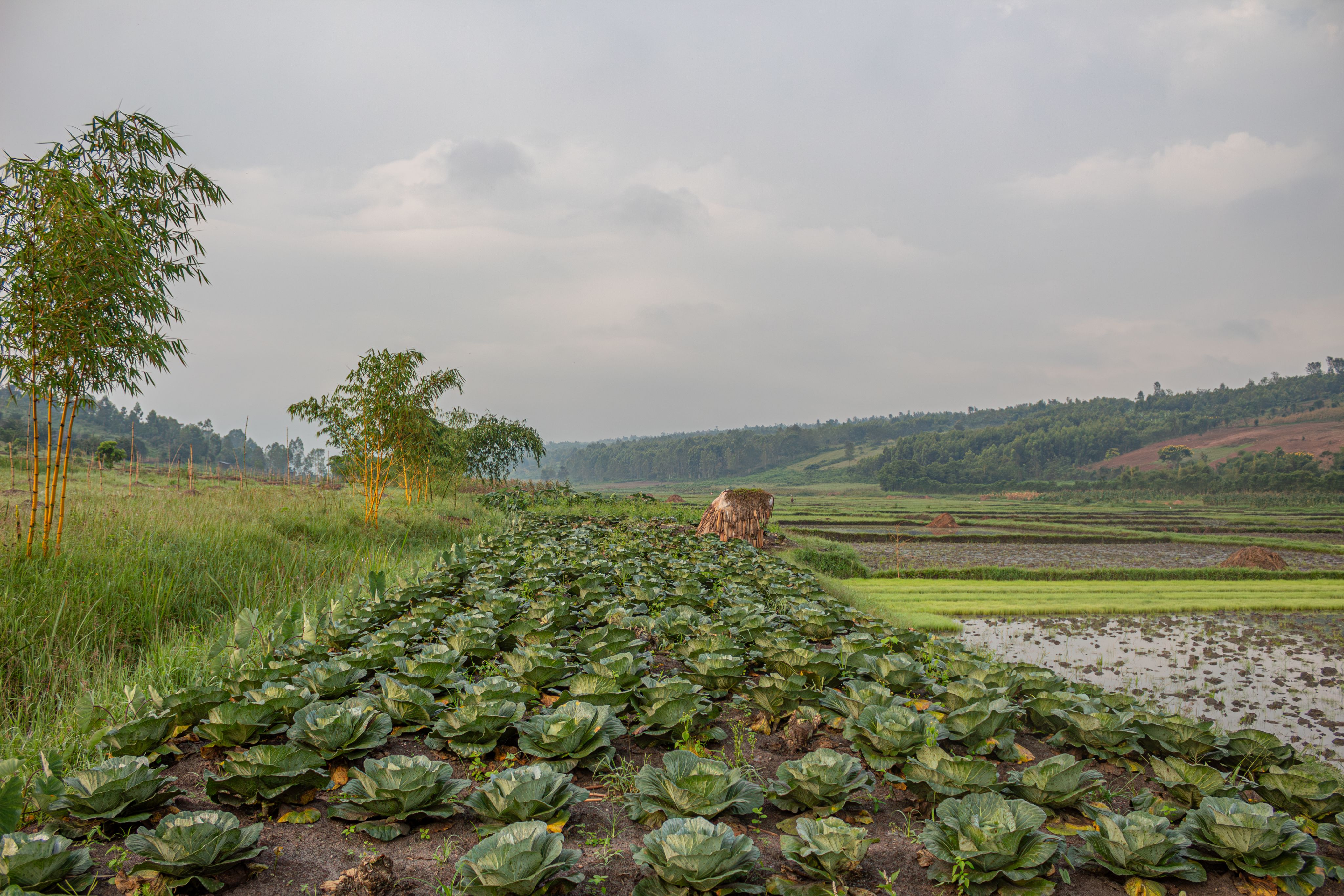
Rows of cabbages extend on one of Celine's farming plots in Gishali Swamp. February 5th 2024
Rows of cabbages extend on one of Celine's farming plots in Gishali Swamp. February 5th 2024
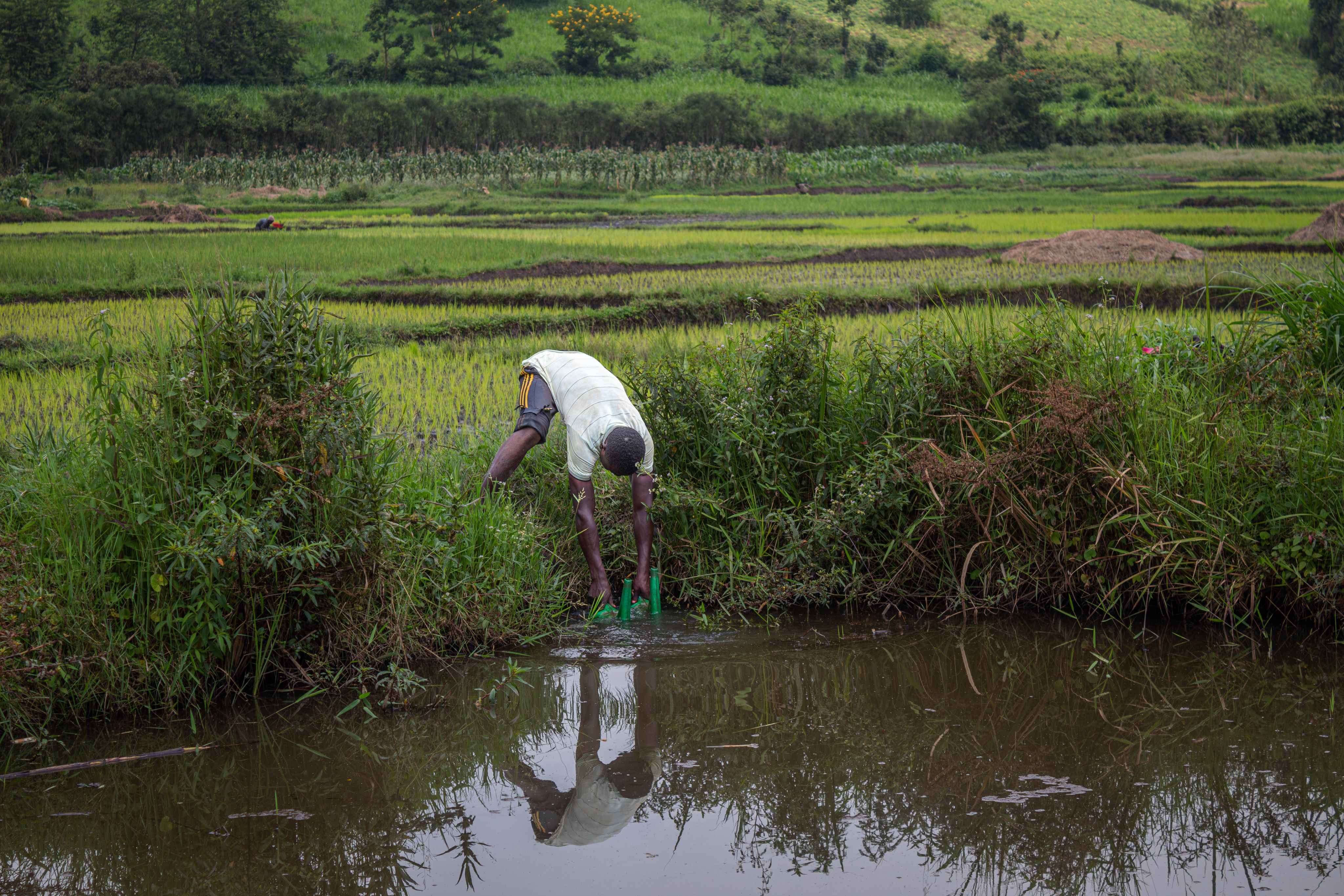
One of Celine's farming plots in Gishali Swamp, pictured. February 5th 2024
One of Celine's farming plots in Gishali Swamp, pictured. February 5th 2024
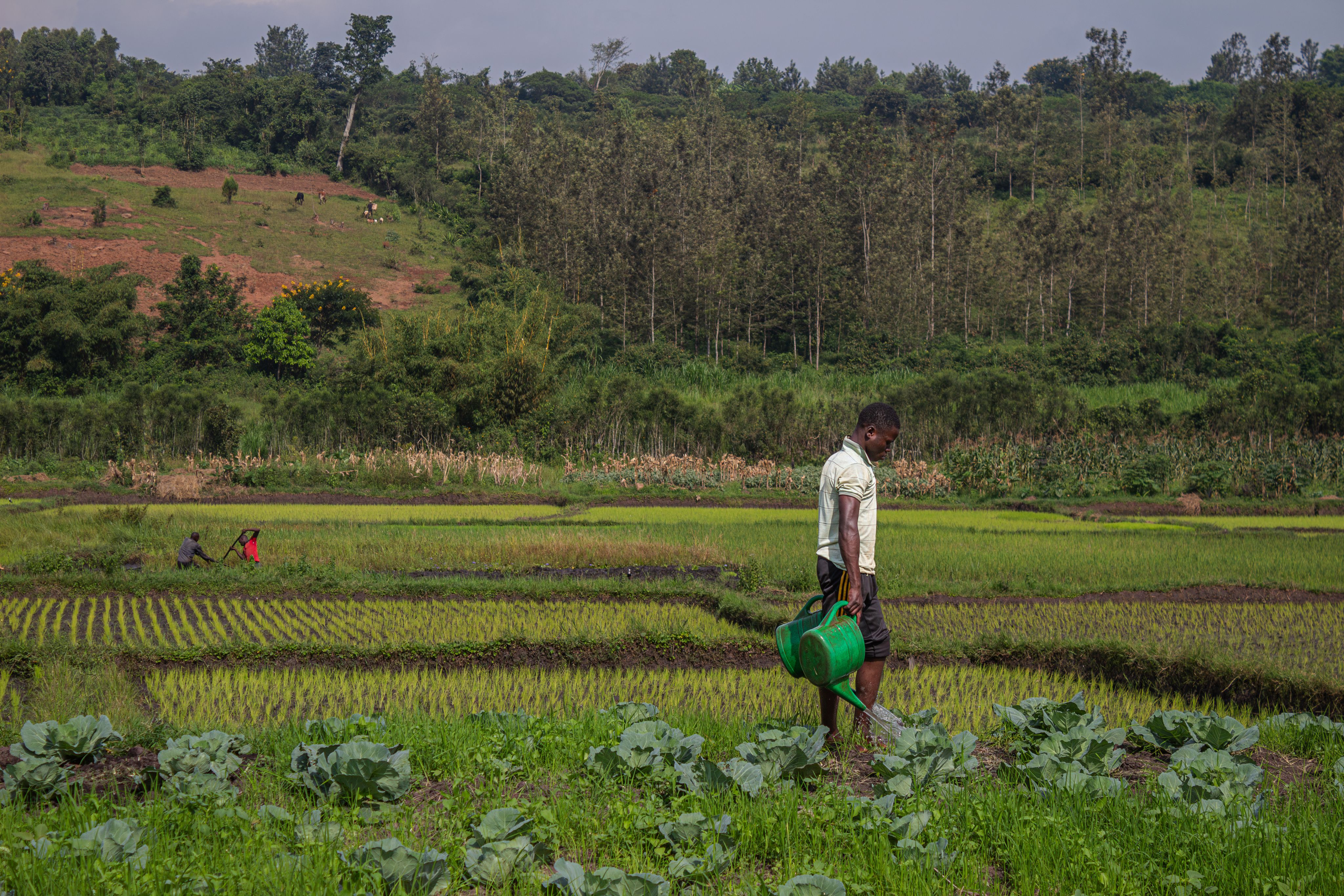
Elissa Hakuzimana, one of Celine's workers, waters her plants in a field in Gishali. February 23, 2024
Elissa Hakuzimana, one of Celine's workers, waters her plants in a field in Gishali. February 23, 2024
Celine had also started keeping cows so that she can produce her own compost.
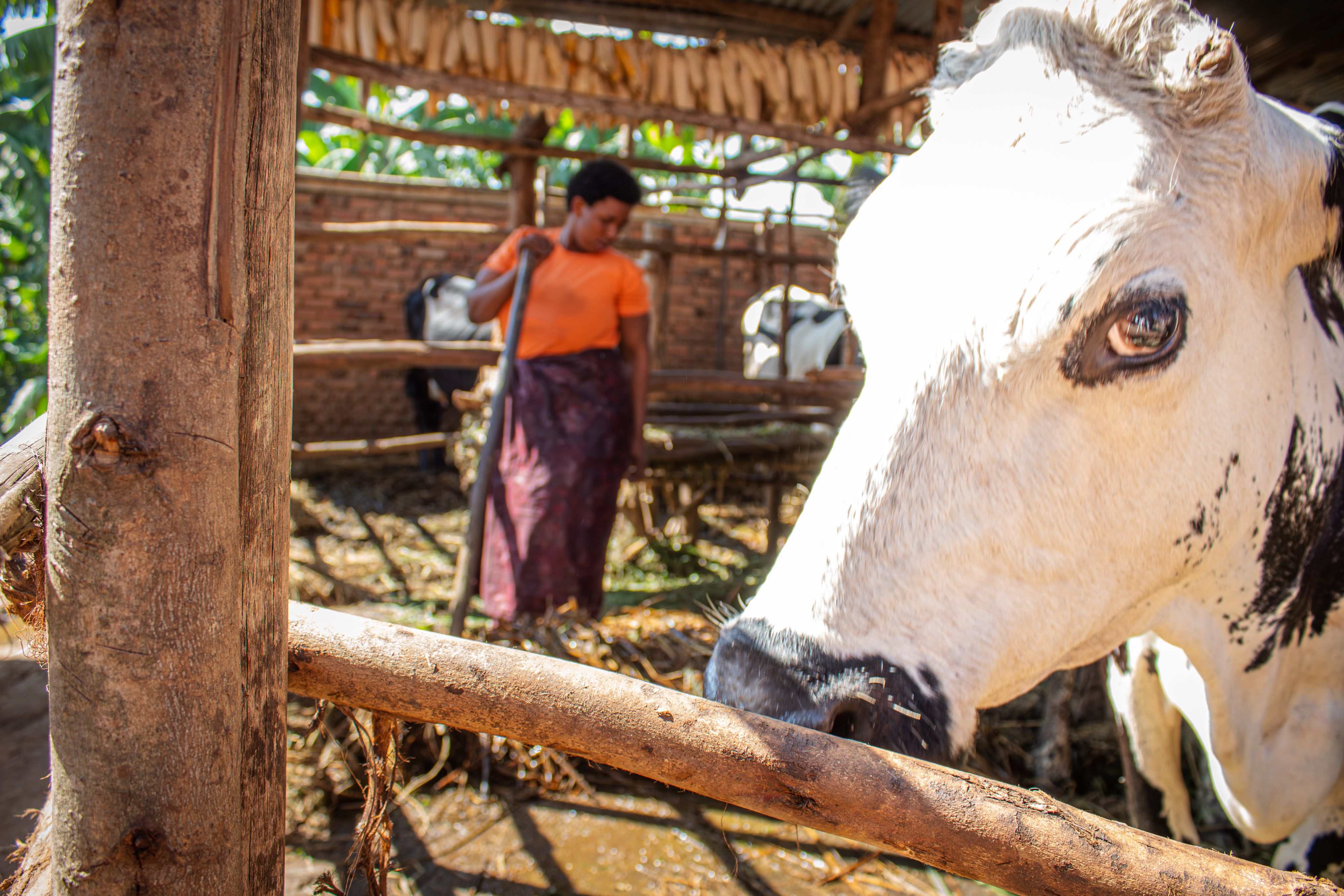
One of Celine's cows, with Celine seen cleaning their shed in the background. February 6, 2024
One of Celine's cows, with Celine seen cleaning their shed in the background. February 6, 2024
Great production during the sunny season, along with the financial support of her husband, have enabled Celine to create employment opportunities for many young women and men in the area, who now work with her as employees.
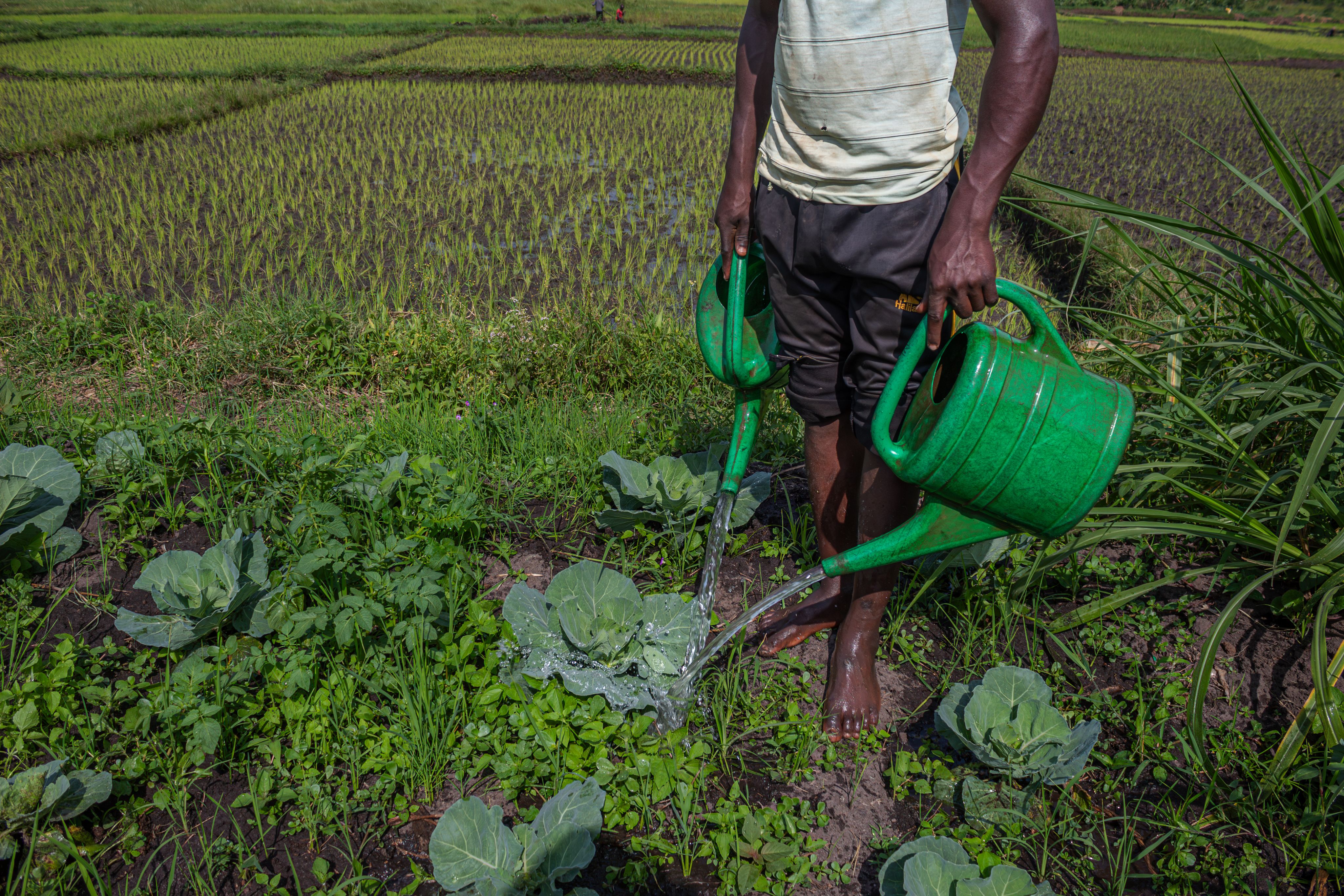
Elissa Hakuzimana, one of Celine's workers, waters her plants in a field in Gishali. February 23, 2024. Elissa has been working with Celine for a year now and comes in only to work in the fields.
Elissa Hakuzimana, one of Celine's workers, waters her plants in a field in Gishali. February 23, 2024. Elissa has been working with Celine for a year now and comes in only to work in the fields.
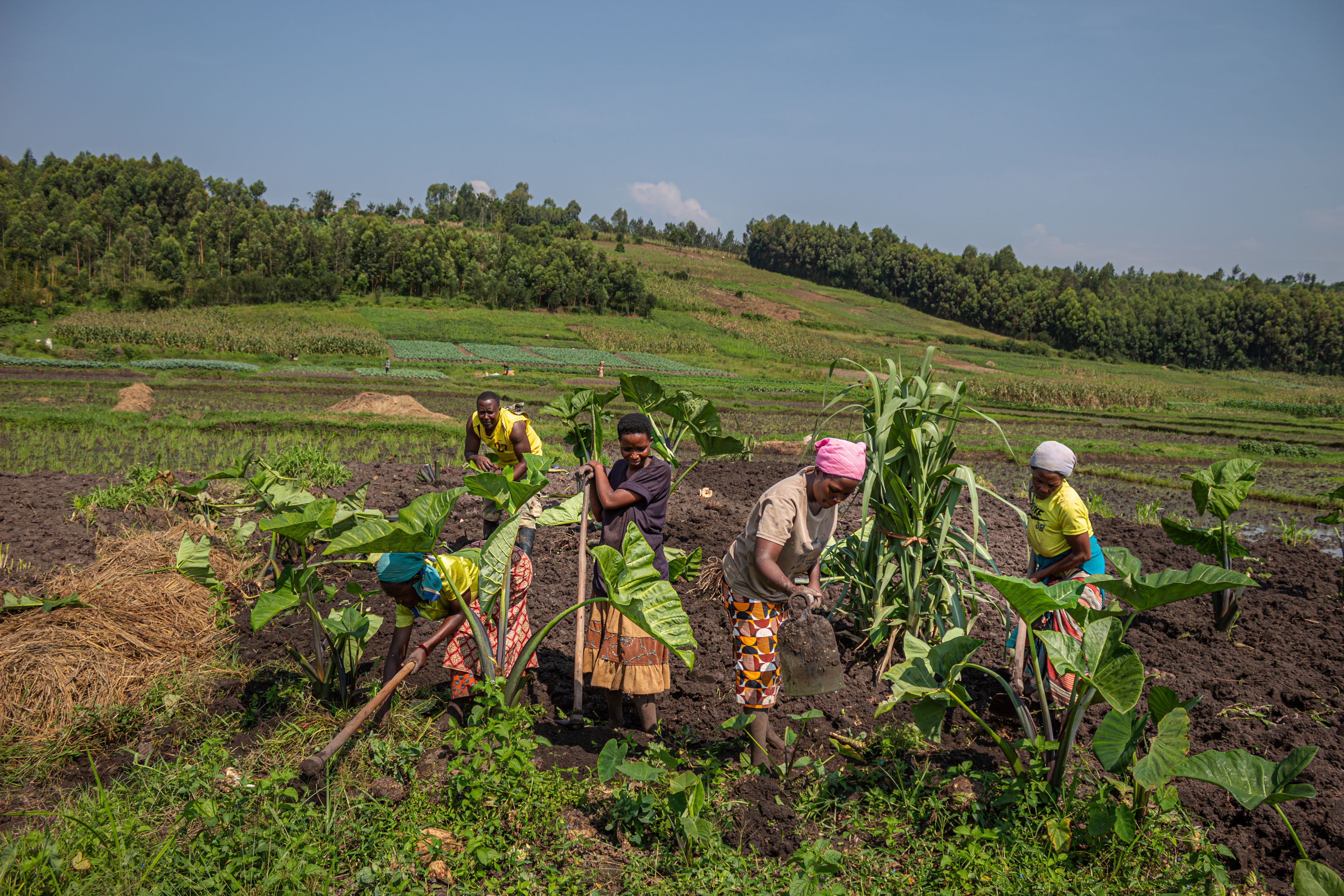
A group of women employed by Celine prepare one of the plots to plant cassava. February 7, 2024
A group of women employed by Celine prepare one of the plots to plant cassava. February 7, 2024
In recent years, however, unpredictable rainfall and weather patterns have been hurting her crops, particularly cabbage, which Celine produces in large quantities, and is vulnerable to climate-induced diseases.
When Celine started growing cabbages, she would harvest up to 300 sacks of healthy cabbage.
This has gone down to 30 sacks now. All the rest of the cabbages Celine harvests are damaged by a climate-induced disease called Kabore, and rendered unsellable.
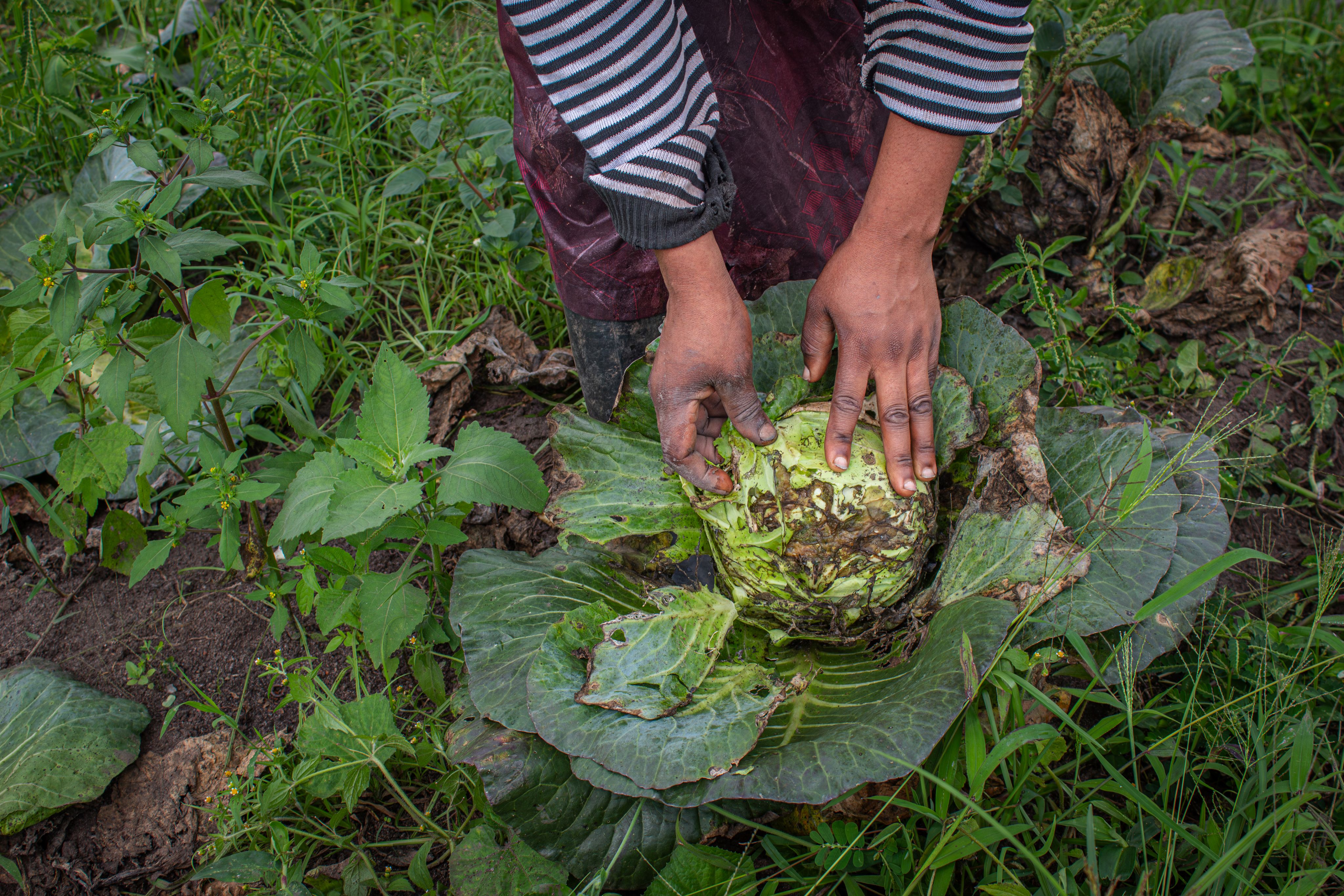
Celine examines a cabbage that has been affected by Kabore, a climate-induced disease. February 21, 2024
Celine examines a cabbage that has been affected by Kabore, a climate-induced disease. February 21, 2024
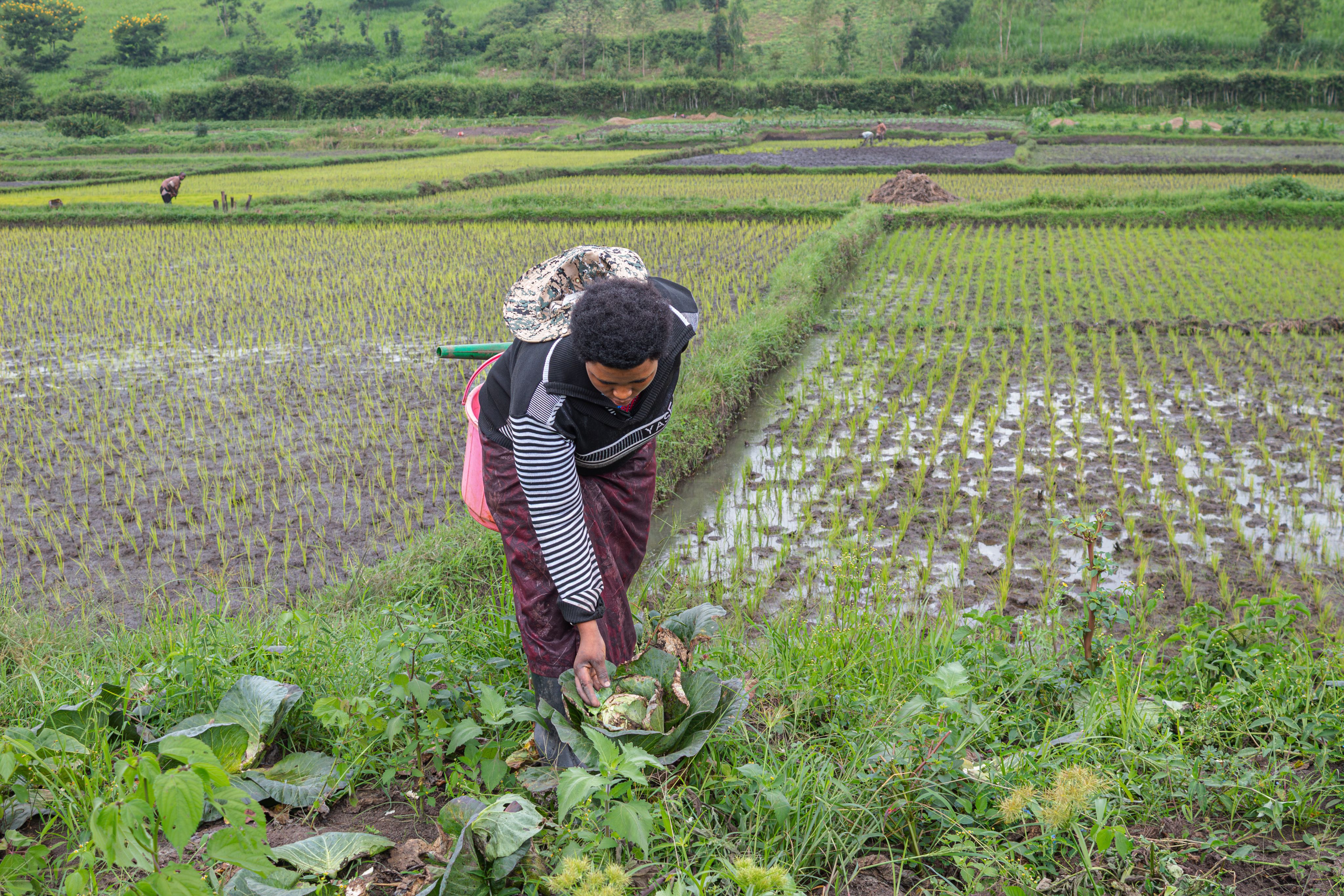

Celine examines a cabbage that affected by Kabore, a climate-induced disease. February 21, 2024
Celine examines a cabbage that affected by Kabore, a climate-induced disease. February 21, 2024
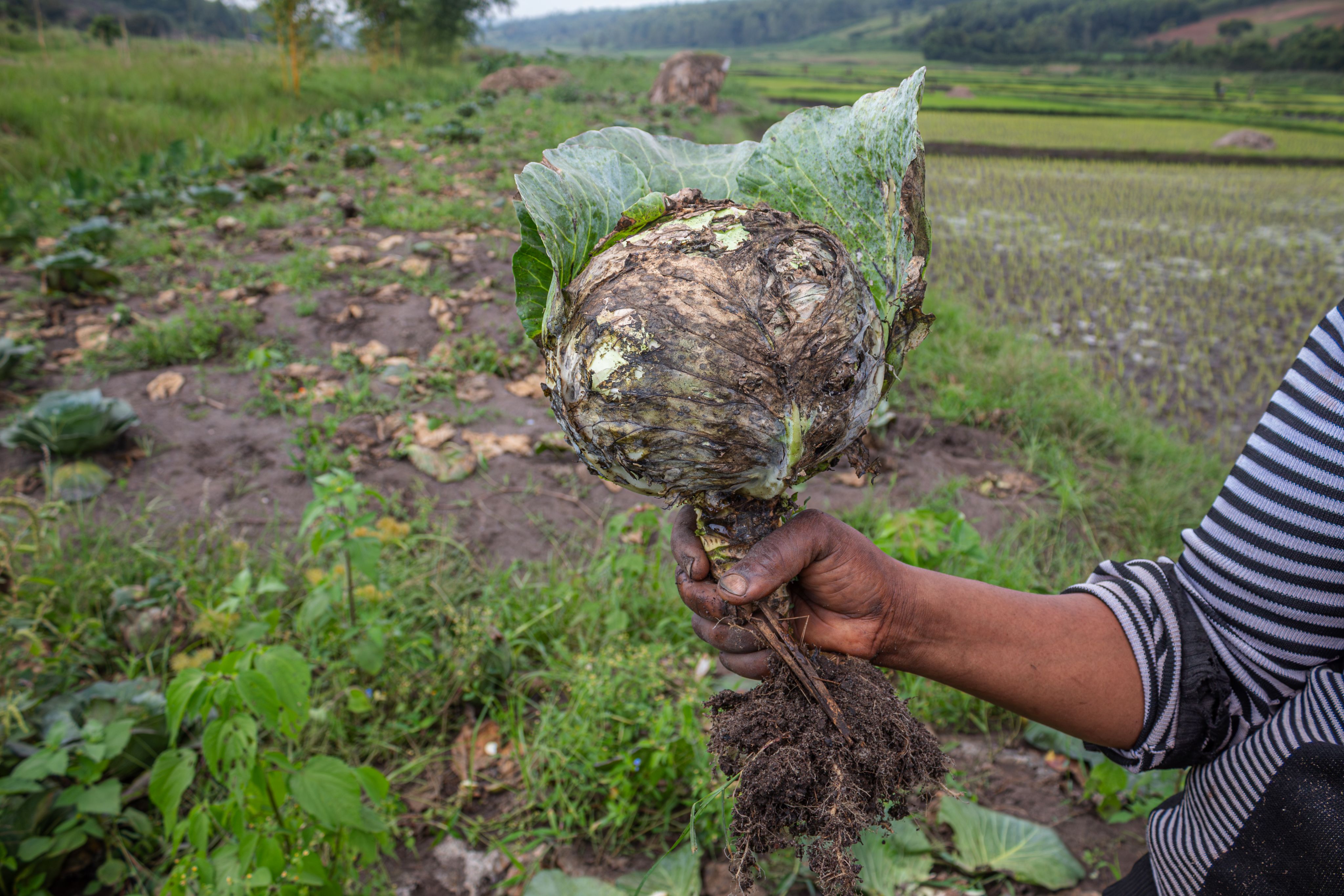
Celine examines a cabbage affected by Kabore, a climate-induced disease. February 21, 2024
Celine examines a cabbage affected by Kabore, a climate-induced disease. February 21, 2024
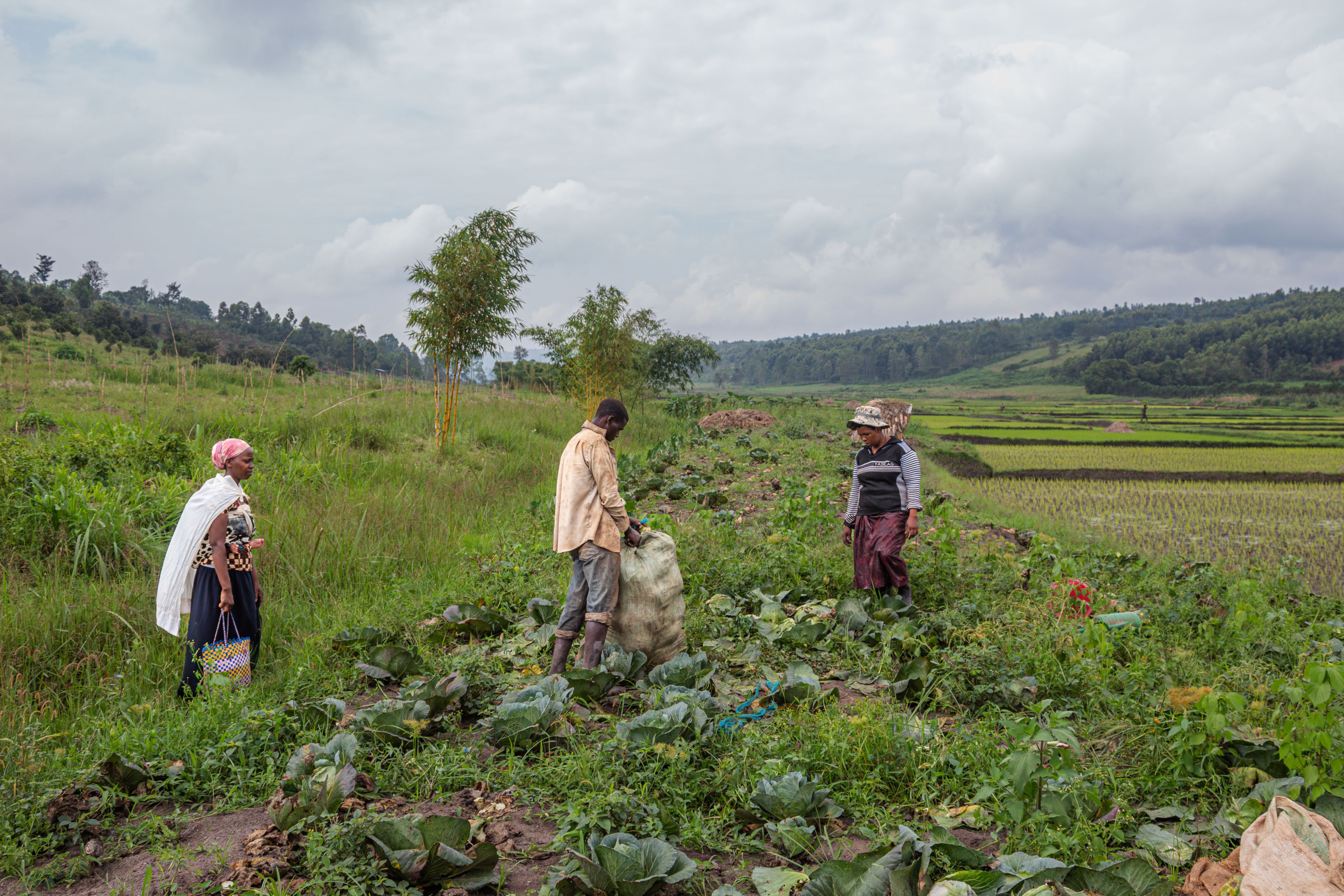
Celine and Olivier, one of her employees, work to harvest and pack cabbages for Julienne Mutuyimana, one of her clients. February 21, 2024. Olivier is a temporary worker and only works for Celine when the need arises.
Celine and Olivier, one of her employees, work to harvest and pack cabbages for Julienne Mutuyimana, one of her clients. February 21, 2024. Olivier is a temporary worker and only works for Celine when the need arises.
Celine has had to diversify her farming following losses from Kabore. She is now growing beans, green peppers and cassavas, and is observing how they perform. She has also added six more cows to her herd to expand her means for income. She sells 20 litres of milk in the morning and another 20 litres in the afternoon to a nearby milk collection centre.
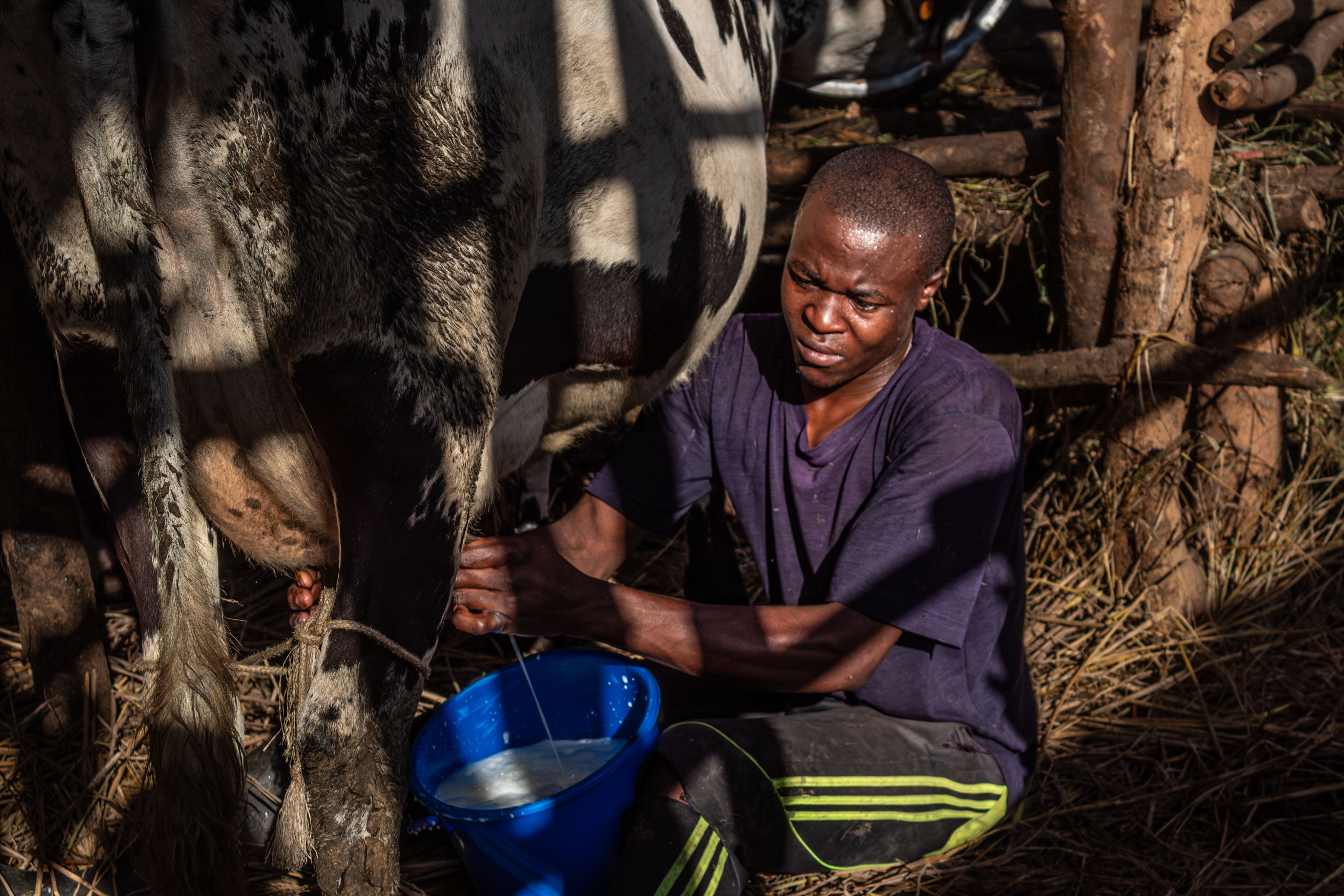
Jean d’Amour, Celine's employee, milks one of her cows. February 6, 2024. Jean has been working for Celine for 8 years, and she offered him housing to allow him to take care of the cows full-time.
Jean d’Amour, Celine's employee, milks one of her cows. February 6, 2024. Jean has been working for Celine for 8 years, and she offered him housing to allow him to take care of the cows full-time.
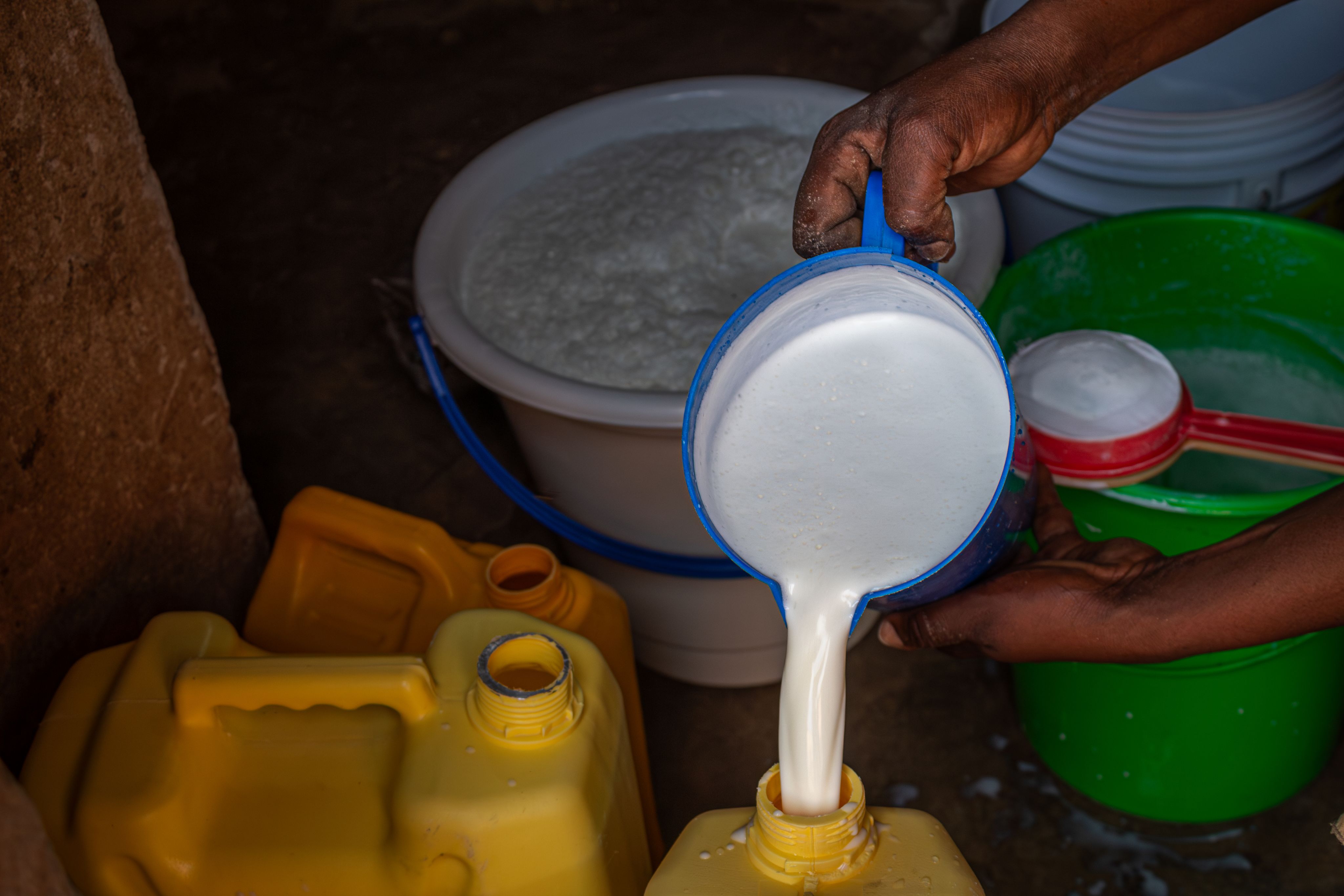
Celine filters milk into jerry cans for resale. February 6 2024.
Celine filters milk into jerry cans for resale. February 6 2024.
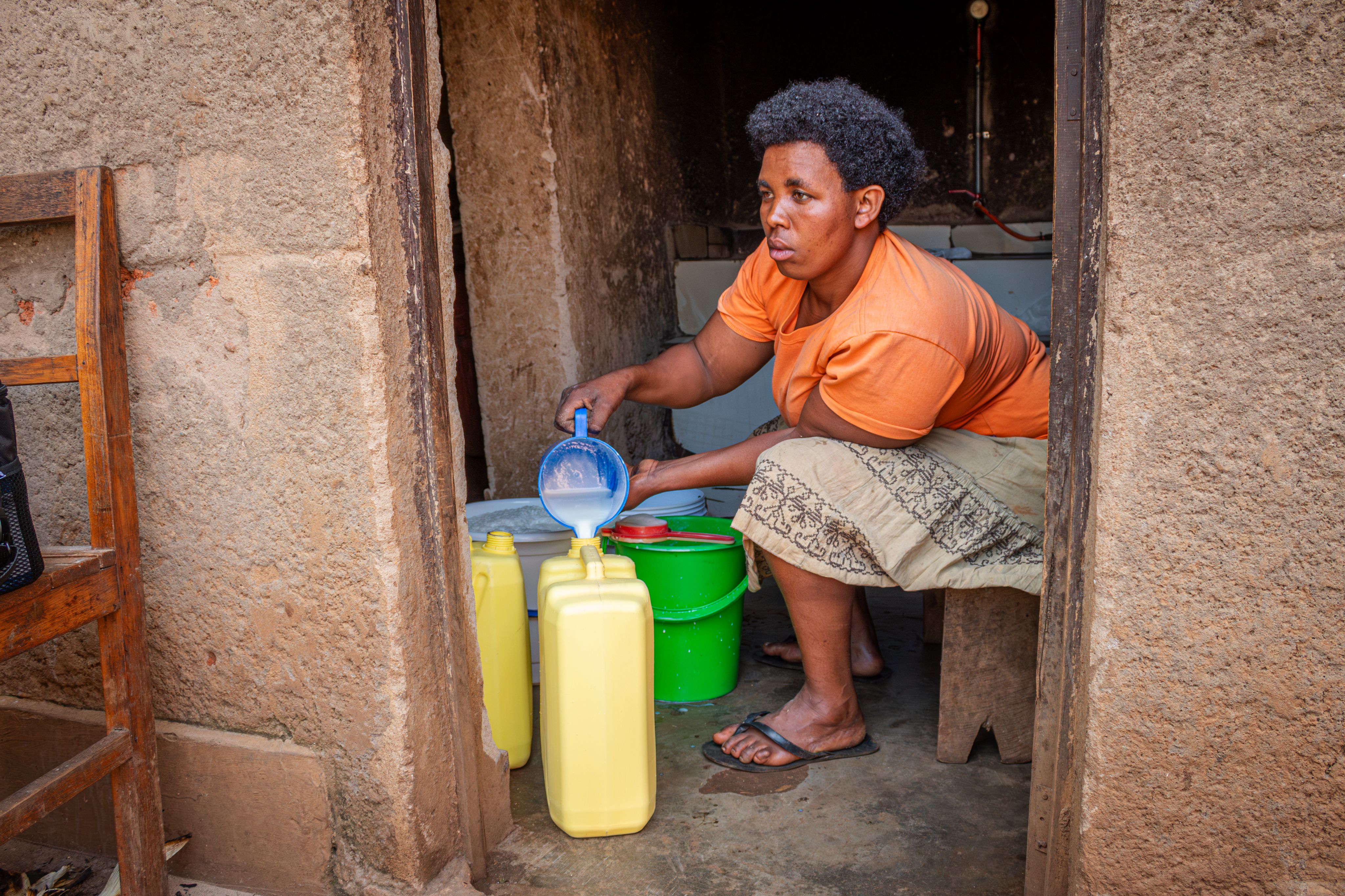
Celine filters milk into jerry cans for resale. February 6 2024
Celine filters milk into jerry cans for resale. February 6 2024
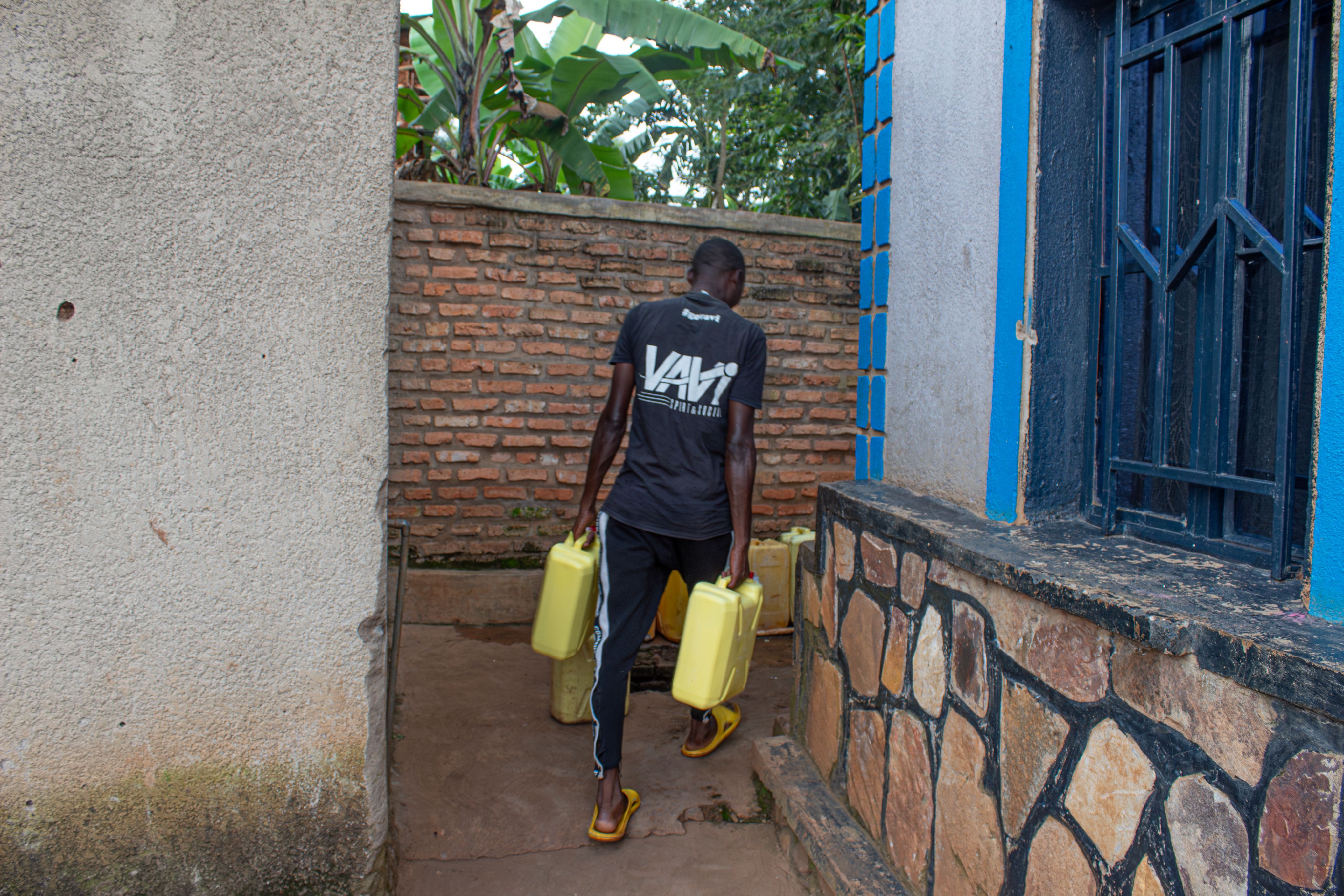
Celine’s employee Emmanuel transports milk in containers to a milk collection centre in Gishali, where Celine sells the milk. February 19 2024. Celine produces enough milk to sell every day and makes at least 480,000 RWF, the equivalent of 400 USD, per month selling milk
Celine’s employee Emmanuel transports milk in containers to a milk collection centre in Gishali, where Celine sells the milk. February 19 2024. Celine produces enough milk to sell every day and makes at least 480,000 RWF, the equivalent of 400 USD, per month selling milk
Although her milk production gives Celine a steady source income, much of it is currently spent buying pesticides, and reinvesting into tendering to her crops. Celine’s husband, also a farmer, supports her in buying the pesticides and in researching ways to overcome the challenge of climate-induced diseases and find other crops that could be climate-resistant.
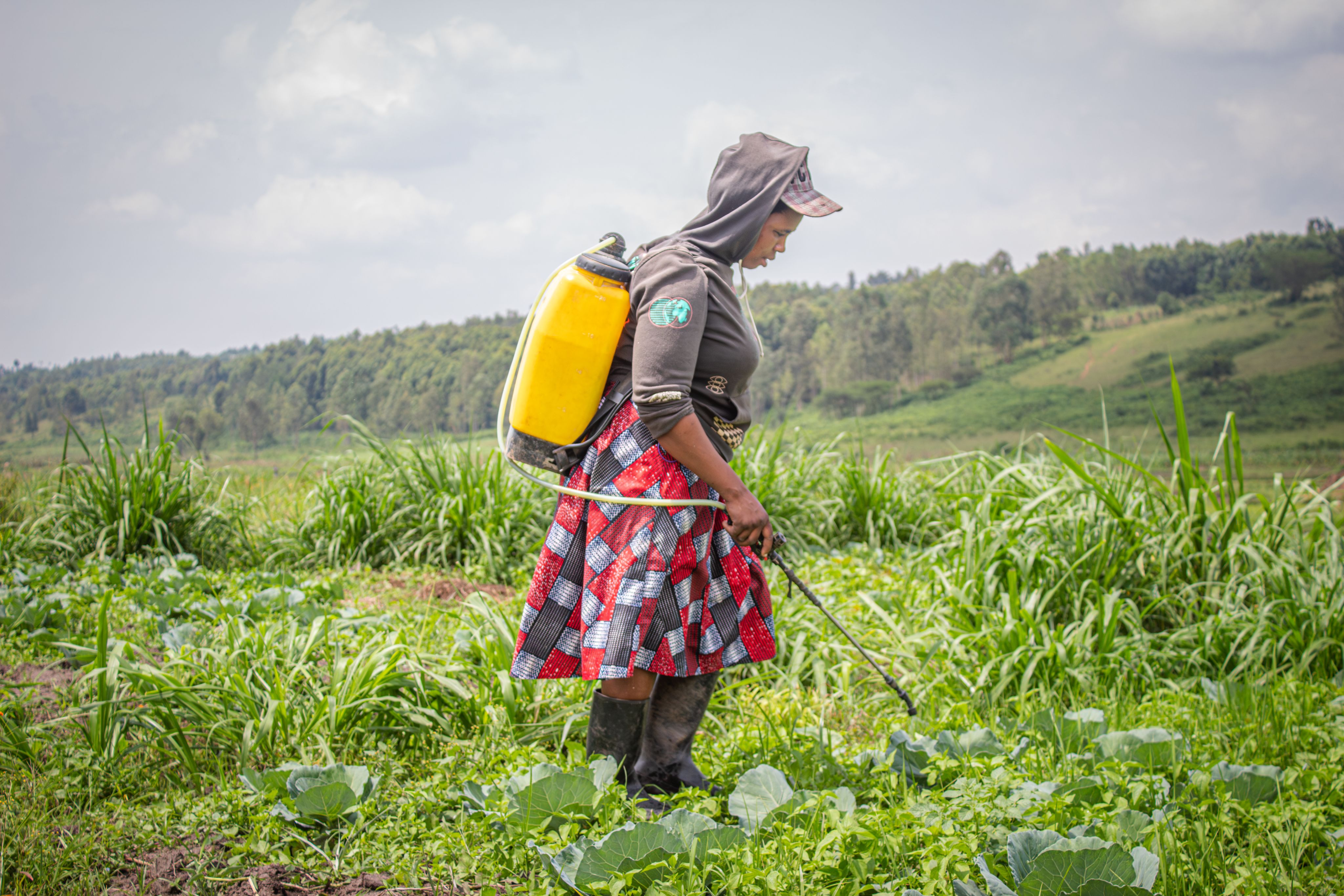
Celine sprays pesticides on young cabbages. February 23, 2024
Celine sprays pesticides on young cabbages. February 23, 2024
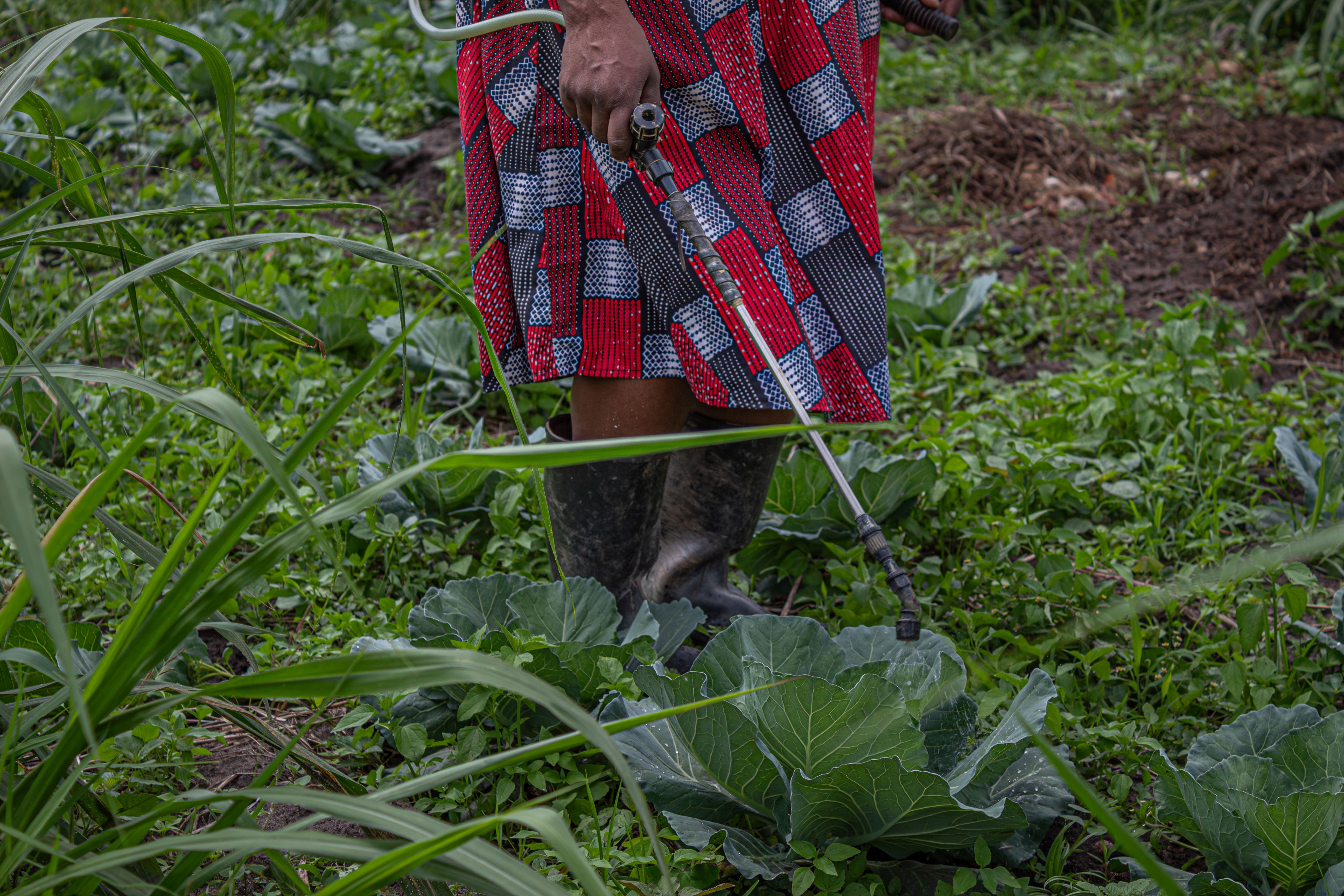
Celine sprays pesticides on young cabbages. February 23, 2024
Celine sprays pesticides on young cabbages. February 23, 2024
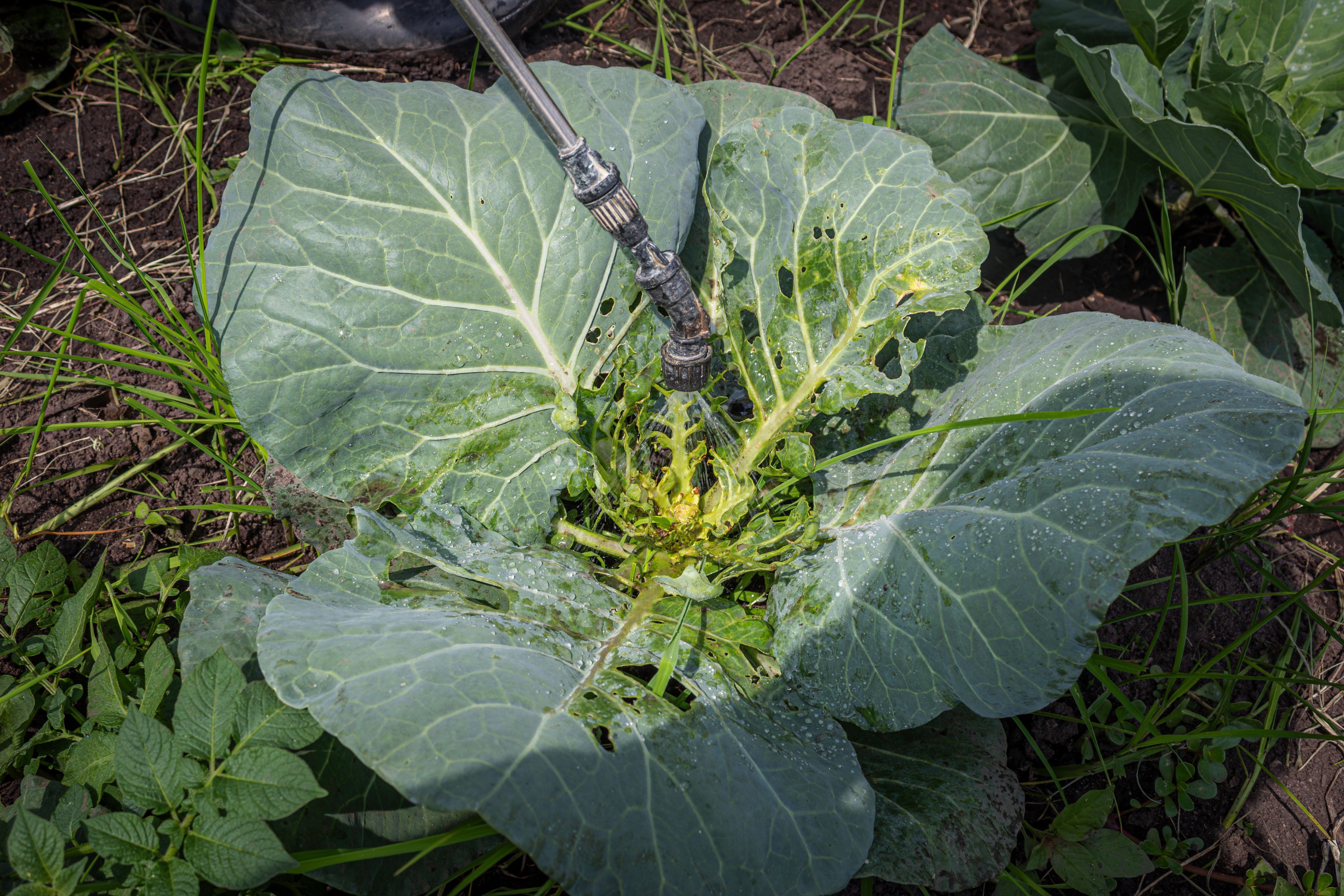
Celine sprays pesticides on young cabbages. February 23, 2024
Celine sprays pesticides on young cabbages. February 23, 2024
Celine is not giving up on her dreams. Her wish is to expand to a point where she can buy a vehicle to transport her vegetables. She also wishes to send her children to a boarding school and to build a house for her mom.
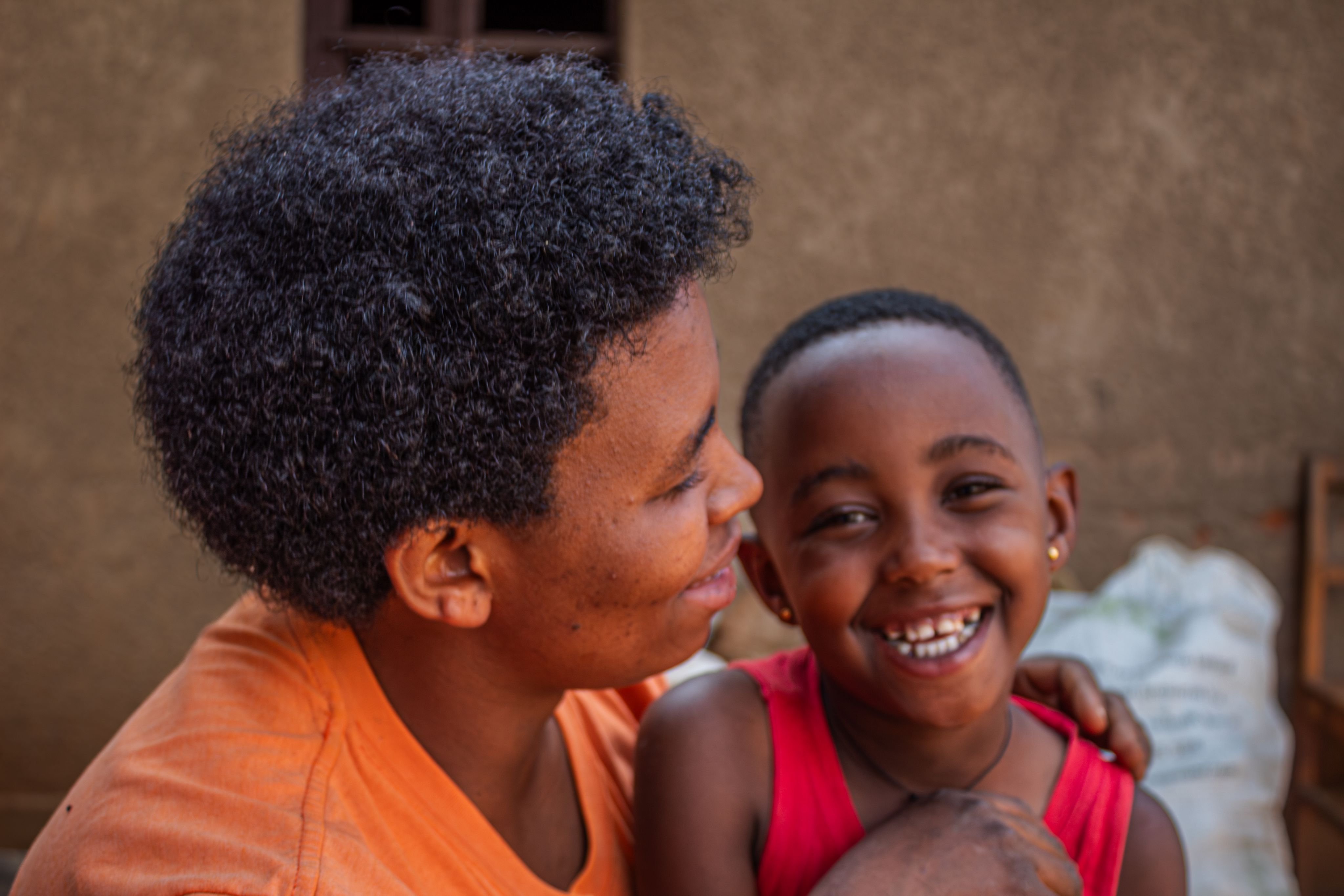
Celine plays with her youngest daughter outside their home in Gishali Rwamagana. February 6 2024
Esperance enjoys a shared a meal with her husband and son. 11th March 2024
Photos from this story are available to buy and license for editorial and educational purposes with 60% revenues going back to the photographer and the rest going to our award program
